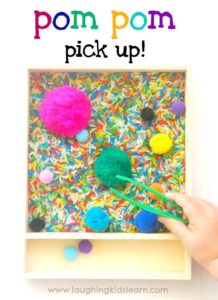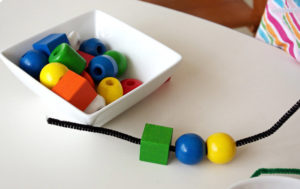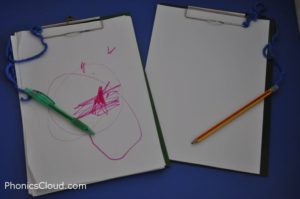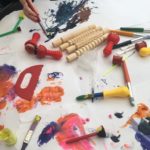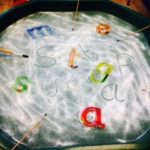 Natalie MacNee is our literacy CoOrdinator for Lainshaw ECC.
Natalie MacNee is our literacy CoOrdinator for Lainshaw ECC.
WORLD NURSERY RHYME WEEK
World Nursery Rhyme week
This year World Nursery Rhyme Week will take place from Monday 15th – Friday 19th November 2021.
World Nursery Rhyme Week – At Home
- If you would like to take part in World Nursery Rhyme Week at home, please click here to visit their website.
- You can sign up to take part in this fun initiative to help provide the best start for our young learners by providing a variety of fun and interactive rhyming learning experiences.
- You will receive information, links to Youtube songs, mp3 nursery rhyme songs, activities ideas and some downloadable and printable activities to take part in with your child.
READING IN EARLY YEARS
Benefits of reading to young children
There are many benefits of reading or listening to a story for our children and young people, some of these are as follows:
- Promotes brain development, concentration and ability to focus
- Develops imagination and curiosity
- Develops language, communication and vocabulary
- Encourages ability to express emotions
- Building and strengthening relationships and developing social skills
- Develop literacy skills and pre-reading skills such as exploring letters, words and that text conveys meaning.
Stories are also a good tool to use to teach children about a new situation, event or concept, such as starting school, a new baby in the family, dealing with our emotions etc.
Before a child is ready to read
- We have to expose children to books, stories and words to allow them to explore, investigate and learn about them
- Having lots of experience looking at and listening to a story, children will begin to value and enjoy them. Children will become comfortable and familiar with this activity and be more likely to read through their educational journey.
What skills are involved in “pre-reading”
- looking at words and books = familiarise and build up enjoyment in this activity
- Reading a story with an adult = children start to learn the basic skills of looking at the words/text from left to right.
- Children are able to identify pictures easier than words. Using this ability during story time is useful when encouraging the children to predict and guess what they think is happening on the page.
- Encouraging the children to follow the text with your finger as you read the words shows children basic pre-reading skills and helping them to feel involved in the story telling process.
Reading opportunities
Reading opportunities are everywhere and taking these short opportunities during our daily lives will provide lots of learning experiences for our young learners, such as:
- Initial letters – “can you find the first letter from your name while we are on our walk to nursery” (looking for the letter on signs, car registration plates, street signs etc.)
- Names – “The post man has brought us a letter, I wonder who it is for, can you recognise who’s name this is?” (encouraging your child to help you read the name on the post if this is something they are showing interest in)
- Environmental print – “I wonder what that sign says” (supermarkets, toy shops, logos, food packaging, cartoon titles … children often learn to recognise these familiar environmental prints before they are able to read the written name of these. They see these as pictures rather than reading the words and this is a good building block to being able to read. Encouraging your child to identify these during your day are beneficial in strengthening their pre-reading skills)
WRITING IN EARLY YEARS
Writing in Early Years
Children learn best through playing, exploring and discovering real life experiences.
✏️There are many different skills, pieces of knowledge and a cognitive understanding that comes with the skill of writing.
✏️ Before a child is ready to write, we have to support and build the foundations of this skill in a variety of ways:
- Physically – strengthen the muscles in the hands. In Early Years we refer to this as “fine motor skills”.
- Cognitively – understanding, exploring, feeling, experimenting with the tools needed to be able to write (paper, pencil etc). In Early Years we refer to this as “mark making”.
- Knowledge & Understanding – “what is a letter/word?” The concept of a letter or word has to be explored, investigated, be heard, seen, played with before it can be used. In Early Years we ofer lots of opportunities for children to explore letters and words without the pressure to write them, through play and investigation.
✏️Other skills that come with being able to write that are encouraged and supported in early years are:
- Hand-eye coordination – little ones being able to physically control where they want the pencil/crayon etc to go and have the cognitive ability (brain) to direct this, following with their eyes and achieving the desired outcome.
- In early years we offer experience to support this skill such as
– using tweezers to collect your favourite colour of Pom Pom and place it in your bowl
– placing small pieces of Cheerios over spaghetti to make a cheerio tower, or threading some string through some beads to make a beautiful necklace.
✏️By taking part in these types of activities, your child is coordinating what they see with what they are doing with their hands.
- Convey meaning to their Mark-making – a useful skill for learning to write is to understand that what we write has a meaning or purpose. Children have to learn this to help them understand the skill of writing.
-
- In early years we offer experience to develop this by:
-
-Encouraging children to discuss what they have “written” (the scribbles or marks on their paper that means something to them in their mind, heart or imagination)
– adults scribing/noting down the discussion or meaning to demonstrate and introduce writing to children by leading by example
– showing examples of writing in a variety of sources such as books, posters, shopping lists, cards, leaflets, on a computer etc and children exploring and playing with these, making their own “shopping lists” etc, practicing the skill of their marks (pre-writing) having a meaning.
✏️We can do this in a fun and inviting way that children will want to take part in, such as with paints, salt, foam, glitter, feathers etc.
✏️Using a wide range of fun and exciting tools makes the learning experience much more enjoyable. When children enjoy the experience, they are more likely to absorb the skill or knowledge and retain this for future learning.
✏️These fun, eye catching and interactive activities are how our little learners are practicing the important skills to help them be able to write in the future.
✏️ Early Years Practitioners are skilled in identifying the level of ability, using children’s interests and current skills to extend their learning further. We adapt these activities to suit each child and their capabilities, while keeping the young learner excited and engaged in the activity.
✏️Supporting our children and young people to develop these skills will help them to become much more confident, successful and achieving writers in their later education and adulthood.


